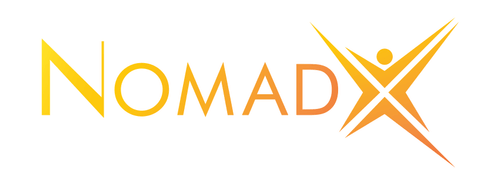Peter Fabor, CEO of Surf Office, on Innovation, Pivoting Businesses, and Nomading with Family
In our latest podcast, Peter Fabor, CEO of Surf Office and a pioneer in the digital nomad movement shares his remarkable journey and insightful perspectives. From the evolution of co-living to redefining team retreats, Peter’s expertise is reshaping how we think about hospitality, work, and community. Here are the key takeaways and quotes from the conversation:
1. Innovation in Hospitality: Hotels Need to Adapt
Peter emphasized the untapped potential for hotels to embrace digital nomads and remote workers. Simple innovations like transforming underused lobbies into coworking spaces can attract a new demographic while creating additional revenue streams.
"Hotels have so much unused space, especially in lobbies. Just calling it a coworking space and inviting locals can create a cool vibe, free marketing, and additional revenue. It’s such an easy win."
Accor Hotels stood out as a leader in this space, with brands like Joe&Joe’s and Vojo pioneering coworking-friendly environments.
"Accor’s long-term strategy to turn hotels into neighborhood coworking spaces is visionary. They’re testing, learning, and scaling."
2. Pivoting a Business: From Co-Living to Retreats
The Surf Office journey began as a co-living space for digital nomads but transformed into a global company retreat powerhouse. Peter’s pivot highlights the importance of adaptability and listening to market demands.
"Co-living was operationally heavy with low margins. Companies like Google and Shopify started asking for team retreats. That’s when we realized the opportunity to scale without owning properties."
Success in retreats came from focusing on relationships with hotels and ensuring a seamless experience for clients.
"We’re not just booking retreats; we’re building partnerships with hotels to create the best possible experience for teams."
3. The Role of Creativity in Hospitality
Peter’s newsletter, Hotel Nuggets, highlights creative ideas that hotels can adopt to stand out. From "dog stick libraries" to croissant machines that let guests customize their fillings, small touches can generate big impacts.
"In a world where many hotels look the same, originality stands out. A small creative idea can go viral and create lasting impressions."
4. Opportunities in Digital Nomad Destinations
Destinations like Algarve and Rio de Janeiro are ripe for innovation. Despite their potential, many regions lack the infrastructure and promotion to attract nomads.
"Algarve is perfect for digital nomads: great weather, lots of hotels, and off-season availability. But the hospitality industry is too conservative to adapt quickly."
Peter also emphasized the importance of promoting destinations globally while building local community infrastructure.
"The key is combining internal community-building with external promotion. Most cities do one or the other, but the real magic is in doing both."
5. Nomading with a Family
Traveling with a young family for eight months was one of Peter’s most rewarding experiences. By staying in each location for at least a month, the family created routines and truly immersed themselves.
"With kids, it’s less about sightseeing and more about creating a stable routine in incredible places. It’s like living at home but with better weather and lifestyle."
Destinations like Canada, Hawaii, and Portugal stood out for their balance of nature, culture, and accessibility.
6. Remote Work and Retreats: A Perfect Pair
Peter highlighted the role of retreats in strengthening remote-first companies, especially in fostering team connection.
"An amazing retreat removes friction - easy travel, the right venue, and seamless planning. It’s about creating an environment where people can relax and connect."
While some companies are pushing for a return to the office, Peter remains optimistic about the future of remote work.
"Remote-first companies won’t go back to the office. The benefits—lifestyle, global hiring, and flexibility—far outweigh the challenges."
Final Thoughts: A Marathon, Not a Sprint
Peter’s journey in the digital nomad and hospitality spaces is a testament to resilience, creativity, and vision. His focus on partnerships, community, and continuous learning offers valuable lessons for anyone looking to innovate in work or hospitality.
"COVID was a sprint. Now, we’re in a marathon. Building relationships and iterating ideas takes time, but it’s worth it."
Listen to the Full Episode
This conversation with Peter Fabor is packed with actionable insights and inspiring stories. Don’t miss it!

